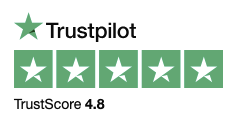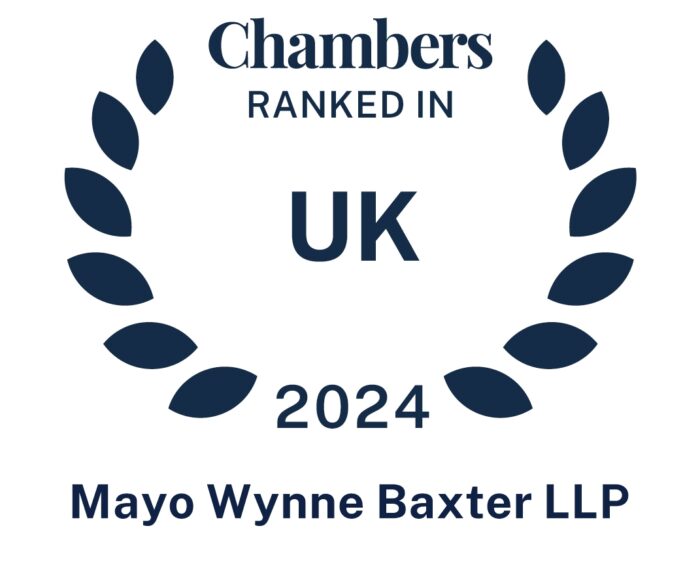
Mediation Law
Family mediation offers a transformative approach to resolving disputes that prioritises your needs and those of your family.
Jump to section...
Family mediation
Mediation is a type of non-court dispute resolution, which can be used across various types of disputes between two parties. It is designed as an amicable and cost effective way of discussing disputes and reaching an agreement, without substantial legal fees or having to start court proceedings.
Mediation is most commonly used to help resolve differences or disagreements between two people whose relationship has broken down, particularly in relation to child care and access arrangements, as well as finances.
The family mediation process involves an unbiased, neutral third party who works with both of you to try and resolve issues and negotiate a settlement. A mediator will listen carefully to both you and your former partner as you explain your concerns and views, and will help to find practical solutions to your contentions or disagreements that are fair to both parties.
Mediators are professionally trained and often have a family law background. Although mediators are not permitted to give you legal advice, they can facilitate discussions, will ask questions to understand your situation and help you take practical steps to reach an agreement, in a calm atmosphere. Some mediators are also trained to include children in the process, however you, your former partner and the child all have to agree to this.
Our specialist family law solicitors provide family law legal services to clients across Sussex, with offices in Brighton, Chichester, Crawley, Eastbourne, East Grinstead, Lewes, Peacehaven, Seaford and Storrington, as well as London.
Family mediation – what’s the process?
If you and your ex-partner want to explore mediation to resolve issues, there are a few crucial first steps to this process.
You can begin mediation at any stage, even if you have been separated for a while or are already involved in court proceedings.
It is important to note that by law, you have to have considered whether mediation can help to resolve issues between you and your ex-partner, before you can make an application to the Family Court. One party will need to have attended an initial Mediation Information and Assessment Meeting (MIAM) in most circumstances.
There are certain exemptions to this rule, for instance if there is evidence of domestic violence, or if an application must be brought before the court urgently.
What is a MIAM (Mediation Information and Assessment Meeting)?
This is the first step of mediation – a meeting with the mediator to find out more about the process and if it is right for you. The mediator will explain what happens during mediation and can also tell you about some other options that might work for you, that could still mean you can avoid court proceedings.
What happens after the MIAM?
If you both agree to pursue mediation after your initial meeting, the next step is to attend a series of mediation sessions. These are usually 1-2 hours long but the time needed and number of sessions will depend on your individual situation and the issues you need to discuss.
In the event that you achieve mutually acceptable proposals, your mediator will create a Memorandum of Understanding (MOU) – a written document that records your mediation proposals and an Open Financial Schedule (OFS). You will be advised of the need to obtain legal advice on the MOU before the proposals become legally binding.
If things change after you have received the Memorandum of Understanding, you can go back to the mediator for further mediation sessions and you can agree to change or update the document.
For most people, family mediation can be hugely successful to resolve issues and can help everyone who is involved to communicate better for the future.
The benefits of family mediation
There are several benefits to exploring mediation to resolve issues when you separate, with the most obvious being that it can help you avoid high cost legal battles in court.
The other main advantages include:
- Helping you to stay in control – mediation gives you more say over what happens and more control over any decisions made between you and your former partner. Unlike court where a judge will make the decisions.
- Finding solutions that really work – in mediation you do not have to accept any outcomes that you are not happy with and no-one can impose any agreement on you against your wishes.
- Cost-effective and quicker to resolve disputes – the mediation process is usually quicker, cheaper and less stressful than going to court, meaning everyone can move on with the rest of their lives sooner.
- A safe and supportive environment – a mediator will guide you through the whole process, listening to everyone’s views. You can talk privately and with your former partner, knowing your views will be heard in a calm environment to minimise conflict.
- Improving relationships and communication – the heightened court environment can put added pressure on everyone involved. Mediation aims to help you and your former partner communicate more effectively and work together to find solutions for your future.
- Better for your children – mediation will be less upsetting for any children and the process shows them the value of cooperation and maintaining important family relationships.
- Flexible and tailored to your needs – meetings can usually take place via video call online or in separate rooms if you prefer it. They are also easier to fit around your daily work life and childcare commitments.
- Returning to mediation – if previous arrangements need to change in light of new circumstances, or where your children’s needs change, agreements can be reviewed and you can book further mediation sessions.
For family law help, contact our team today
If you need help or further advice with family issues, please contact us today. Our family law team can offer impartial advice for your specific situation.
Call us today
Or request a call back from a member of our team
Meet our team
Our other mediation law services
Why choose Mayo Wynne Baxter
We are a family law team that prioritises client care and providing expert, bespoke legal advice on all family law issues.
- Personalised and compassionate approach
- Specialist team of family law solicitors
- Strong focus on client satisfaction and accessibility
- We provide personalised advice and support throughout the whole legal process

Our Memberships and Awards
Mediation Law FAQs
Mediation is a type of non-court dispute resolution, which can be used across various types of disputes between two parties. It is designed as an amicable and cost effective way of discussing disputes and reaching an agreement, without substantial legal fees or having to start court proceedings.
Our Latest News
Our specialist team are here to help you and guide you through the legal process. We pride ourselves on providing exceptional service from outstanding people.
If you would like to speak to a member of our team, please fill out the enquiry form. We will aim to reply to your query within 4 business hours.
Need to speak to someone sooner?
Call us: 0800 84 84 101
What to expect when you contact us
- Once you have completed the contact form or called us, our client service team will call you back, to ask a few questions including your preferred method of contact. This information is then passed directly to the Legal Adviser who will be working for you. Once you are happy to proceed we will gather all the relevant information and your file will be opened almost immediately so we can start work.
- A member of the Client Service Team will keep in contact with you on a regular basis throughout your transaction, to make sure you and them are satisfied with the progress of your matter. There is no additional charge to you for their involvement.
- We are here to assist you and ensure everything proceeds as smoothly as possible. You will have direct contact details for the client service team, who you can contact at any point during your matter.
Our aim is to make the process as easy and uncomplicated as possible for you.













